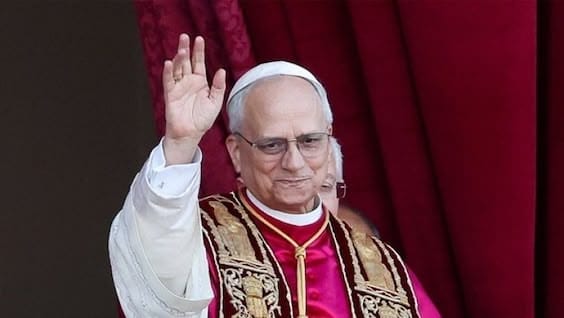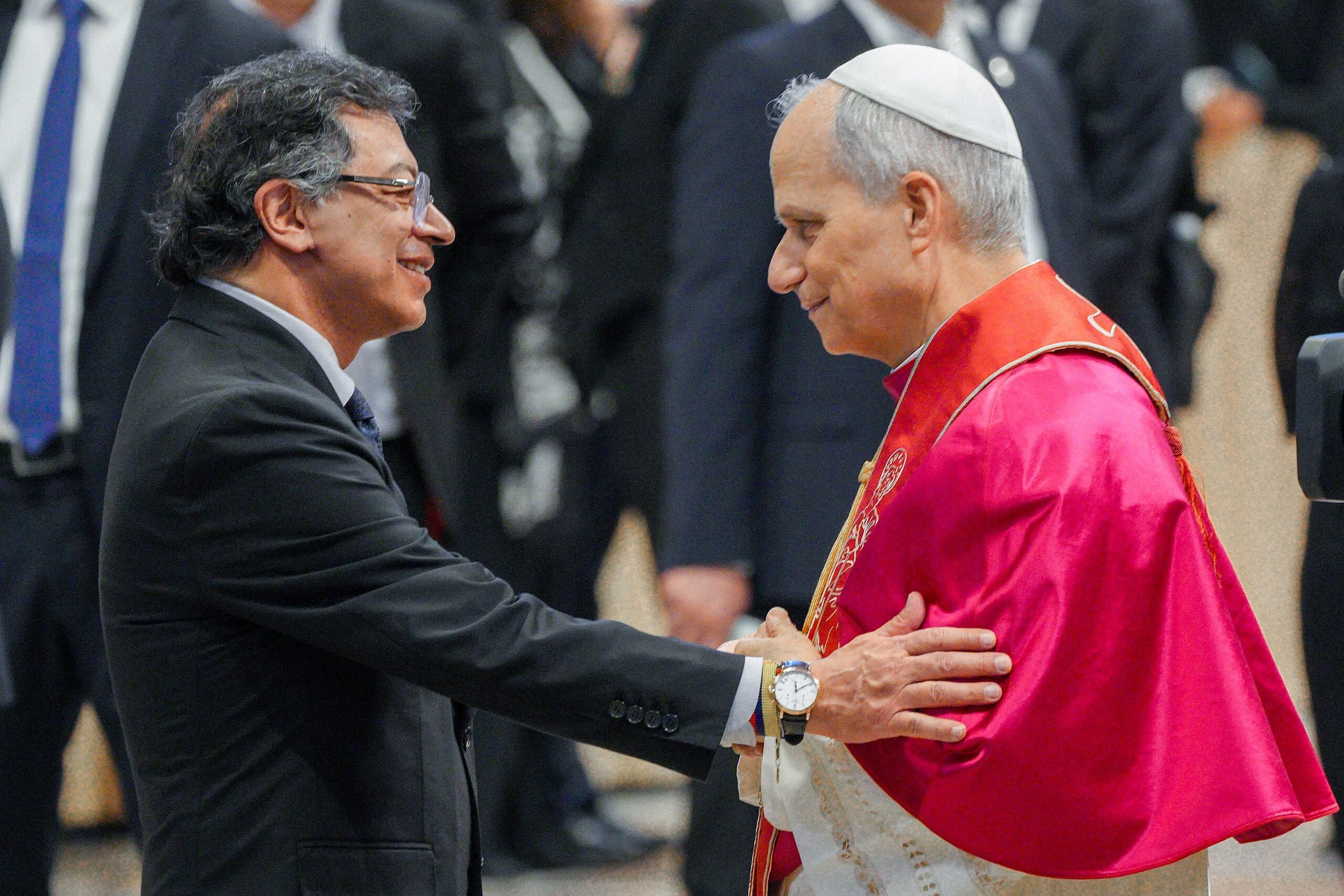Monday, October 20, 2025, will remain a landmark date in the history of the fight against abuse in the Catholic Church. For the first time since his election last May, Pope Leo XIV opened the doors of the Vatican to an international organization of victims and advocates for victims of sexual abuse in the Church. This meeting with Ending Clergy Abuse (ECA) marks a powerful symbolic turning point in the policy of transparency that the new pontiff appears to want to instill in his ministry.
A first hearing full of symbols
An unprecedented gesture of openness
This meeting is not insignificant. For decades, victims of abuse in the Church have been demanding a direct hearing, without intermediaries or diplomatic filters. By personally receiving the ECA representatives, Leo XIV is sending a clear signal: the Church is ready to listen, to listen, and perhaps finally to act more radically.
The ECA delegation, composed of victims from different continents and their advocates, was able to present their main demands directly to the Pope. At the heart of their requests: the establishment of a global policy of "zero tolerance" for all cases of abuse, regardless of the perpetrator's hierarchical position.
The context of a nascent pontificate
Leo XIV, elected only five months ago, is gradually building his vision of the Petrine ministry. A former missionary in Peru, then a bishop in the same country before becoming a senior figure in the Roman Curia, Robert Prevost—his baptismal name—is well acquainted with the realities on the ground. Several press articles have investigated how he handled abuse cases while he was a bishop. While there is no evidence to accuse him of concealing facts, the slowness of certain canonical procedures under his supervision has raised questions.
This meeting with ECA therefore takes on a particular dimension: it shows that he has heard these criticisms and that he wishes to place the protection of victims at the center of his pontificate.
Ending Clergy Abuse: A Global Network of Resistance
The story of an international mobilization
Ending Clergy Abuse is not an organization like any other. Founded by victims for victims, it has for several years brought together associations from different countries that fight against abuse committed by members of the clergy. Its work is not limited to denunciation: ECA actively campaigns for structural changes in the governance of the Catholic Church.
The organization has been particularly visible during demonstrations outside the Vatican, notably the one on September 27, 2023, which brought together numerous victims to share their suffering. These visible actions, sometimes considered provocative by some conservative circles within the Church, have nevertheless helped maintain pressure on the Holy See.
ECA's demands
The organization's main demand at this historic meeting was the establishment of a global "zero tolerance" policy. But what does this expression, which has become almost a slogan, actually mean?
For ECA, zero tolerance involves several concrete measures. First, the immediate dismissal of any cleric found guilty of abuse, without exception or consideration of their rank in the hierarchy. Second, the establishment of clear and accessible reporting protocols in every diocese worldwide. Finally, total transparency on the cases handled, with the publication of statistics and the procedures initiated.
The organization also advocates for harmonization of practices between different episcopal conferences. Today, a bishop in France does not handle a case of abuse in the same way as a bishop in Italy, Latin America, or Africa. This disparity creates lawless zones where some predators can continue to operate simply by moving to another diocese or country.
The Uneven Progress of the Global Church
A recent report highlights the disparities
A few days before this historic meeting, on October 16, the Pontifical Commission for the Protection of Minors published a report highlighting the progress made in the fight against abuse, but also pointing out significant disparities between countries.
This document, the result of several months of work, paints a mixed picture of the situation. Some countries, particularly in Northern Europe and North America, have implemented strict protocols, independent commissions, and training processes for priests. Other regions are lagging worryingly behind.
Italy, a problematic case
The report singles out Italy, the seat of the Vatican, in particular, where "the culture of transparency is struggling to take hold." This criticism is not insignificant: it shows that even at the heart of Catholic Christianity, attitudes are slowly evolving.
In Italy, several factors explain this resistance. First, a certain traditional closeness between the clergy and civil institutions, which can sometimes lead to less rigorous handling of cases of abuse. Second, a culture of secrecy still prevails in certain ecclesiastical circles, where problems are managed "internally" rather than exposed publicly.
This Italian situation is all the more paradoxical given that the Vatican itself is pushing for greater transparency at the global level. How can African or Asian bishops be convinced to adopt strict protocols if the Holy See's host country fails to set an example?
Continuity with François, but also change
The Legacy of Pope Francis
Leo XIV clearly followed in his predecessor's footsteps on the issue of abuse. Francis had made this fight one of his priorities, increasing his number of meetings with victims, creating the Pontifical Commission for the Protection of Minors, and promulgating the "Vos estis lux mundi" law in 2019, which established clear procedures for reporting abuse.
Yet despite these advances, many victims criticized Francis for lacking firmness in certain cases, notably by keeping in office bishops accused of covering up abuses or by delaying the dismissal of compromised cardinals.
An American approach?
Leo XIV's American background could influence his approach. In the United States, the Catholic Church faced a wave of massive revelations of abuse in the 2000s, particularly in Boston. This crisis forced the American bishops to adopt drastic measures, under pressure from civil justice and public opinion.
This experience could prove invaluable. Leo XIV knew the concrete consequences of poor management of abuse cases: considerable financial losses, parish closures, and a collapse of the faithful's trust. He also knew that only total transparency could rebuild that trust.

The challenges of a global zero tolerance policy
Cultural and legal obstacles
Implementing a global zero tolerance policy in an institution present on all continents and in very different cultural contexts represents a considerable challenge.
In some countries, the very concept of child sexual abuse is understood differently. Local traditions, sometimes reinforced by questionable religious interpretations, can minimize the seriousness of certain acts. Moreover, legal systems vary considerably from one country to another, making harmonizing procedures difficult.
The question of means
A zero-tolerance policy requires significant resources: training for clergy and church personnel, establishing professional listening units, in-depth investigations into each report, and support for victims. However, many dioceses, particularly in developing countries, are severely lacking in financial and human resources.
The Vatican will therefore have to consider a system of international solidarity, in which the wealthiest dioceses would help the poorest to implement protection protocols. This pooling of resources could involve the creation of a global fund dedicated to combating abuse.
Resistance from certain conservative circles
Let's not kid ourselves: not all Catholics support a radical approach to transparency. Some conservative circles fear that this policy could harm the Church's image or open the door to false accusations.
This resistance even exists within the Roman Curia, where some prelates believe that the Church should first resolve its problems internally before exposing them to the public. Leo XIV will have to navigate these different sensitivities while maintaining the course of necessary reform.
A balanced diplomacy
The diplomatic style of Leo XIV
Since his election, several observers have noted that Leo XIV favors a "balanced and delegated diplomacy." Unlike his predecessor Francis, known for his bombast and sensational statements, the new pope seems to prefer to work behind the scenes, relying on the Secretariat of State, which has clearly regained control.
This approach could prove effective on the issue of abuse. Rather than brutally imposing reforms that would provoke resistance, Leo XIV could choose to gradually build a consensus, involving the episcopal conferences in the development of protocols.
Continued discussion promised to ECA
At the October 20 meeting, the Vatican mentioned the opening of an "ongoing discussion" with Ending Clergy Abuse. This diplomatic formulation suggests that the dialogue will not end with this first meeting.
For the victims and their advocates, this is a significant victory. For a long time, activist organizations were kept at a distance, considered too radical or too critical. By institutionalizing dialogue with ECA, Leo XIV implicitly recognized the legitimacy of their struggle and the importance of their demands.
The challenges for the future of the Church
Rebuilding trust
The abuse crisis has profoundly shaken the faithful's trust in their Church. In many Western countries, this crisis has resulted in a collapse in religious practice, a drop in priestly vocations, and widespread distrust of the institution.
A zero-tolerance policy alone will not be enough to restore this trust, but it is a necessary condition. Catholics want to know that their Church protects the most vulnerable and punishes the guilty without weakness.


